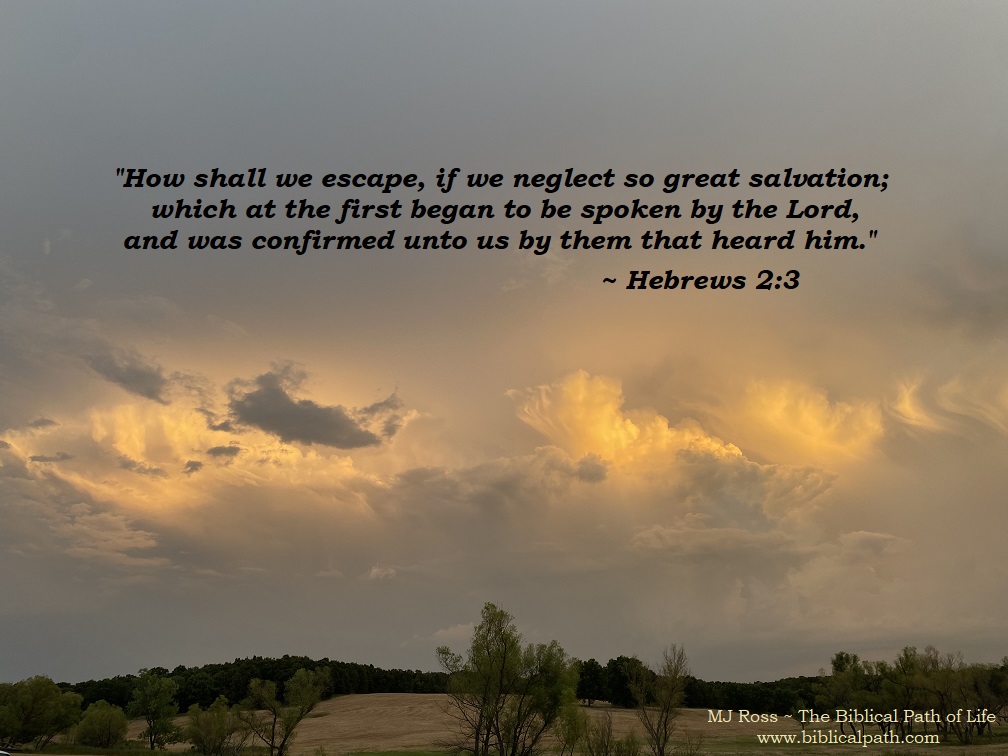
“Every man’s work shall be made manifest: for the day shall declare it, because it shall be revealed by fire; and the fire shall try every man’s work of what sort it is.”
1 Corinthians 3:13
Once one believes that Jesus died upon the cross to pay for sin, then trusts in Jesus as one’s Lord, there is a growing process that is to begin. Christians learn to walk in obedience to God’s Word. We must also learn to joyfully surrender to His will. Christians are to lay aside the sinfulness of this world, in obedience to God, understanding one day we will be with Him in heaven (see Romans 6:12-13). So as we live here on earth, Christians are to live lives for Christ.
There are many lives recorded in the Bible that are examples to help us understand how to live as a Christian. Paul was one of the great ones. He recognized the importance of obedience, and recorded the following to help us understand. “Wherefore, my beloved, as ye have always obeyed, not as in my presence only, but now much more in my absence, work out your own salvation with fear and trembling” (Philippians 2:12). This verse does not mean that one “works” for his salvation. Work out means “to work fully, that is, accomplish; by implication to finish… perform, work out; toil; commit.” Christians are to allow the salvation (that we already have because of Jesus) to be manifested (revealed by how we live Christ-like) in the expression of this new life. Christians need to live Christ-like for our own benefit. However, it is more than this. It is also important for Christians to accomplish, finish, what God has for us to do while we live here in this world. This verse emphasizes that it is each Christian’s responsibility. Salvation here means “of the present experience of God’s power to deliver.”
The greatest thing to recognize is that Christians have been given the Holy Spirit within to teach us and lead us into the truths found in God’s Word. “For it is God which worketh in you both to will and to do of his good pleasure” (Philippians 2:13). God promises that He will work in our lives, helping us to do what is right and pleasing to Him. God working in Christians emphasizes that God enables us; for we cannot do it on our own. When you read “both to will”, it is letting Christians know that it is to be our desire to do what God expects of us. When you read “and to do,” we understand that all that we do for the Lord here depends upon His working in us, fulfilling His plan. He allows us to accomplish things for Him while we are on this earth – if we will only obey Him. Remember: we are not doing it alone – for God’s power is helping us. We are to not come short of what God has for our lives here on the earth. Christians are to actually accomplish what God has for us to do.
There is a picture for us that may help in understanding how we can please God. “11. For other foundation can no man lay than that is laid, which is Jesus Christ. 12. Now if any man build upon this foundation gold, silver, precious stones, wood, hay, stubble; 13. Every man’s work shall be made manifest: for the day shall declare it, because it shall be revealed by fire; and the fire shall try every man’s work of what sort it is. 14. If any man’s work abide which he hath built thereupon, he shall receive a reward” (1 Corinthians 3:11-14). Once I belong to Jesus (He is my foundation), I choose how to build my life here on this earth. In verse twelve, we find six things built upon the foundation “which is Jesus Christ”. The first three listed (gold, silver, and precious stones), picture things that glorify God. Fire cannot destroy the first three. Fire purifies them. However, fire will destroy the last three mentioned (wood, hay, stubble). These things are representative of things from this life and world that we cannot take with us into eternity. It is important that we choose to build lives here that glorify God, and to not choose the temporary things of the here and now. One day, when I stand before God, I will account for the kind of life I lived for Him. My salvation was determined when I accepted Jesus as my Lord and Saviour. However, one day I will be rewarded for the things I have accomplished for the Lord. (“For we are his workmanship, created in Christ Jesus unto good works, which God hath before ordained that we should walk in them” Ephesians 2:10. Also see Romans 8:1). Anything I have done that did not glorify Him will be burned up – for “it shall be revealed by fire”.
Something that should make the choices in this life easier: Christians are to remember that our lives are no longer our own, for we have been bought with a price. “For ye are bought with a price: therefore glorify God in your body, and in your spirit, which are God’s” (1 Corinthians 6:20). Remembering that Jesus gave His life to purchase each Christian’s salvation, Christians are to choose to accomplish the things He has for us to do, pleasing Him.
Have you chosen to fill your life with the things of this world that will one day be “revealed by fire”?
Or
Have you determined to build your life with things that glorify God, looking forward to a reward from Him?


